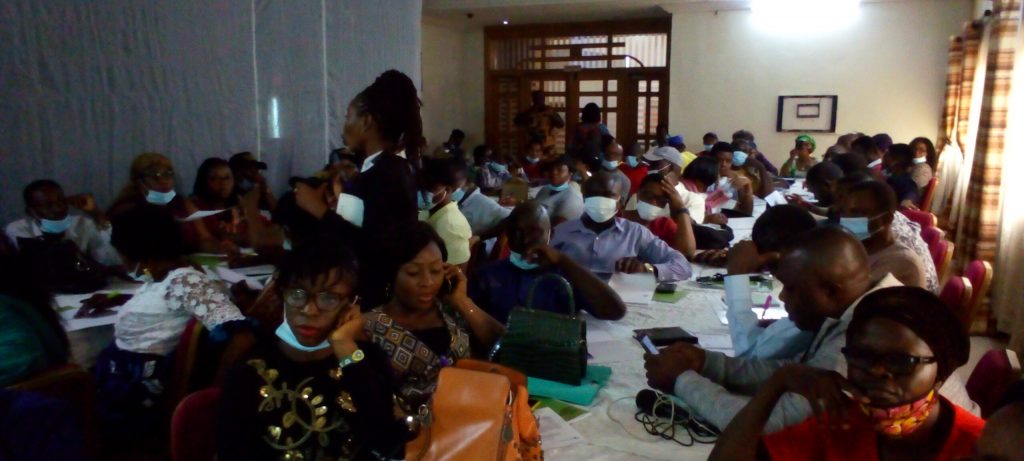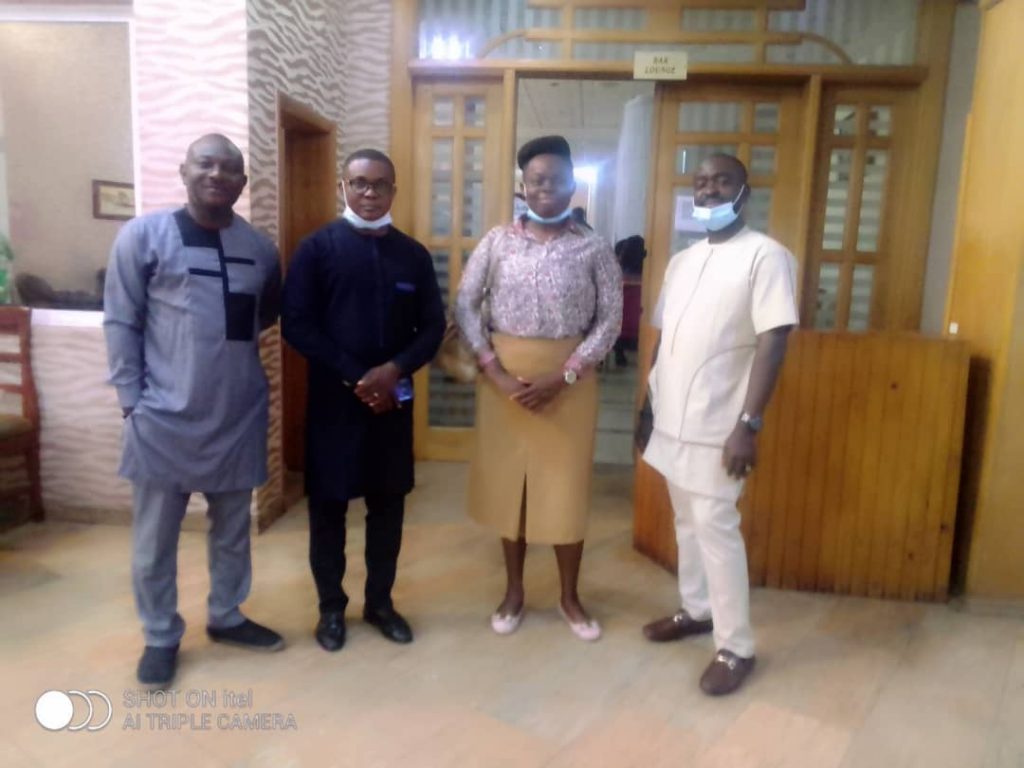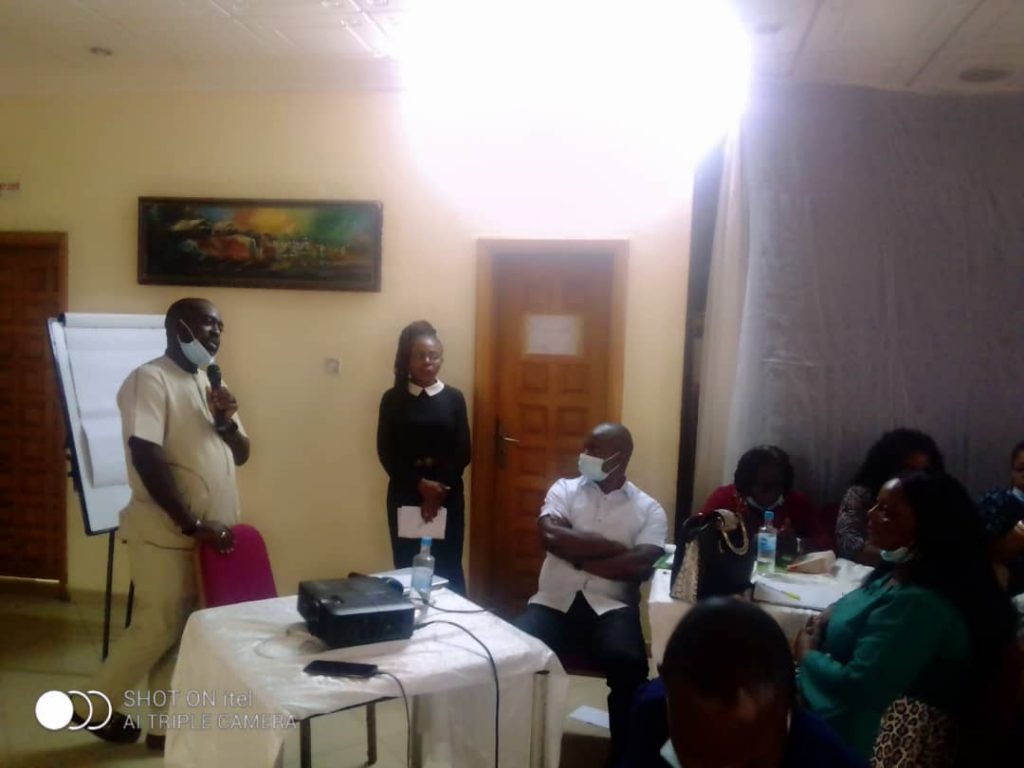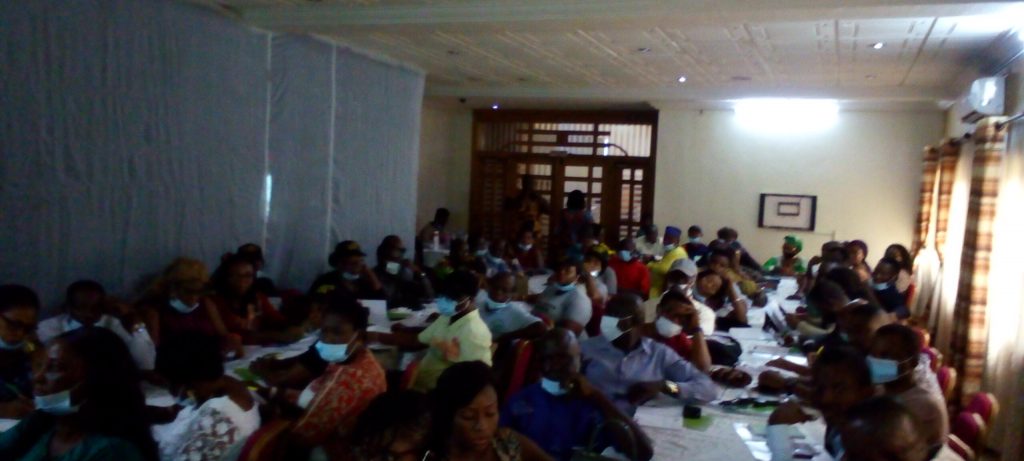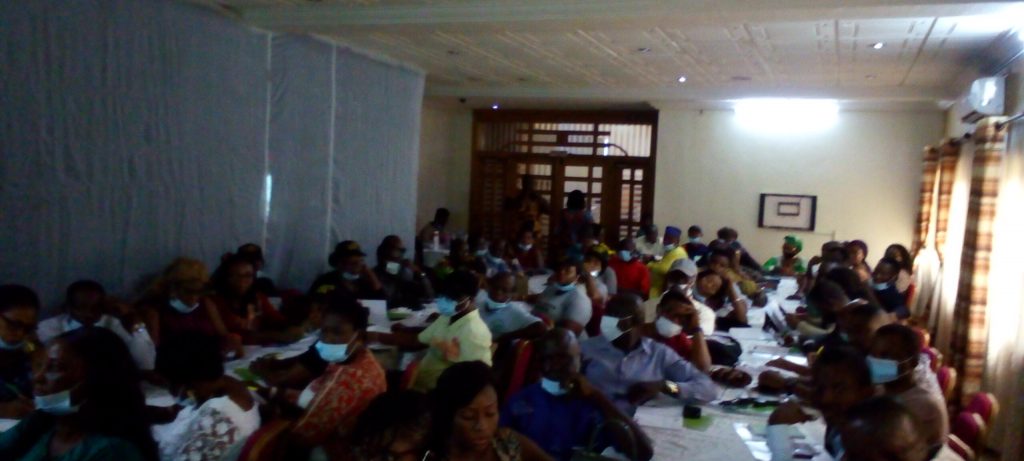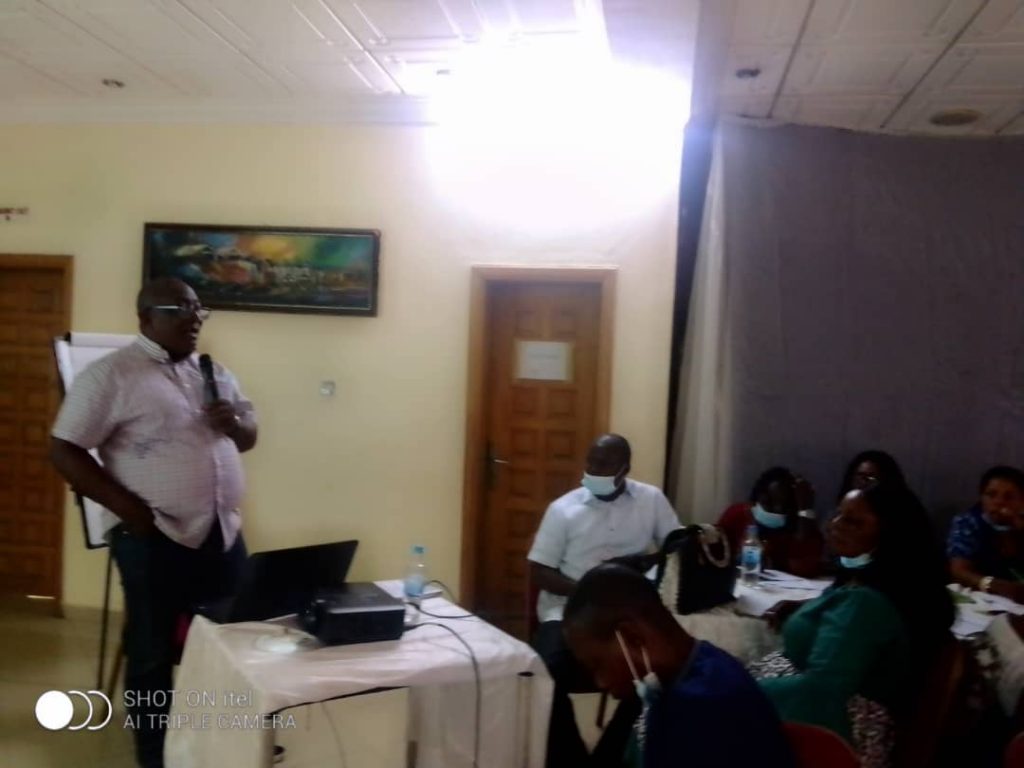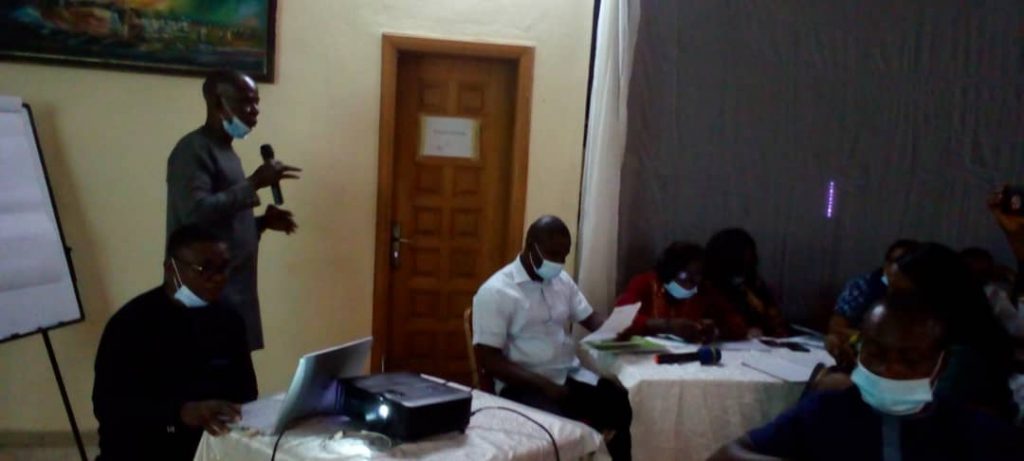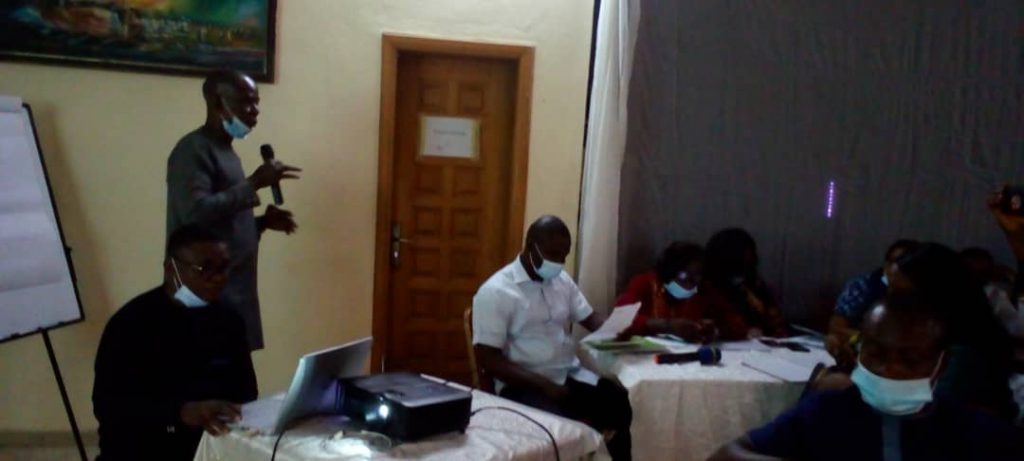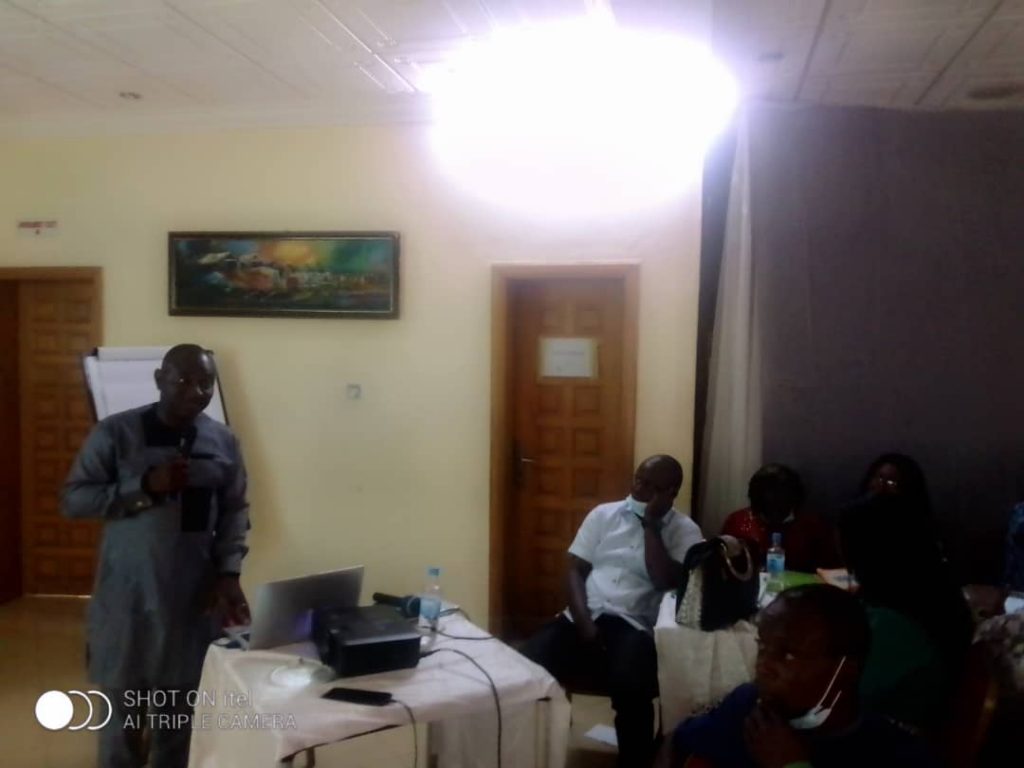Anti-corruption: LG Autonomy, PB, CNA, Panacea To Rural Development-Social Action- Investigation
…. As Nigerian Leading NGO Harps On Citizens’ Engagement For Community Development And Service Delivery
…Group Says 70% of Nigerians Live in Abject Poverty, Kick-starts Capacity Building for CSOs, Niger-Delta Communities.
By Victor Bieni, Asaba
Social Development Integrated Centre (Social Action), a leading Nigerian NGO, anti-corruption organisation established in 2008 working to promote resource democracy, social justice, community development and service delivery by building capacities with citizens’ groups to adress policies, practices and promote public finance accountability has said that citizens engagement can be effective when there is full implementation of Local Government autonomy, participatory budgeting, and community needs assessment as approaches to checkmate corruption in government agencies such as NDDC.
Our reporter learnt this today being 8th July, 2021 during the two days capacity building workshop for members of Civil Society Organisations, CSOs, Community groups, and the media organisations on the theme: “Strengthening Civic And Community Actions Against Corruption In The Niger-Delta Development Commission (NDDC), as organised by the leadership of Social Development Integrated Centre (Social Action) led by the Program Coordinator, Botti Isaac, Program Officer, Prince Edegbuo, and other Principal officers in Partnership with MacArthur Foundation, event held at Orchid Hotels, DBS Road, Asaba, Delta State capital.
The Program Co-ordinator, Social Action, Botti Isaac who presented the overview of the project stated that citizens’ engagement is the major objective of the program so as to train, strengthen the capacity of Community agents to engage NDDC, which he said is a typical example of government agency enmeshed in endemic corruption and mismanagement of public resources.
He added that, the project seeks to eliminate corruption in the operations and systems of the NDDC and position it for effective service delivery by mitigating the environmental, human, and structural development deficit in the Niger-Delta towards the attainment of the region’s sustainable development goals (SDGs).
Speaking further on the overview of the project by Social Action Program Officer, Prince Edegbuo noted that as strong pointer to lack of transparency and accountability, allegations of fraud, procurement law abuses, audit violations, cronyism, non-budgetary expenditures, retinue of abandoned projects were all clear indications of fiscal recklessness and mismanagement of funds or resources.
One of the resource persons who doubles as the Executive Director, ED, Centre For Citizenship, 3CADA, Comrade Bonny Akaeze, who did justice on the topic: “”Understanding Local Government Administration In Nigeria” stated that the community remains the oldest local government, while local government itself is statutory, also that the only way poverty can be eliminated in Niger-Delta, and Nigeria in general is when autonomy of the third tiers of government is fully guaranteed by law and not being stiffled by the State or Federal Government agents.
The second presentation was done by another resource person, a green academia, Dr. Harry Udoh who lectured the CSOs and representatives of different media organisations that for effective and efficient community development and service delivery to be fully attained in Niger-Delta region, that there is need for participatory budgeting. He said that participatory budgeting is one of the core elements of an open budget system that should be encouraged in Niger-Delta Communities through best global practices by interfacing with the States Ministry of Economic planing or within the Local Government system. Also that citizens’ consultation, legislative debate and others should be encouraged to ascertain the needs of communities towards deepening the six key factors of engagements of Community members: use of information, dialogue, implementation, auditing or evaluation, findings for feedback.
The third presenter, Mr. Kentebe who lectured on the topic: “Community NEEDS Assessment For Community Development and Service Delivery in Local Government Areas of Nigeria” said that Community Needs are gaps between what currently exist, and what should exist, that it may be helpful to categorize gaps based on four types of community needs. Which included amongst others: Perceived(present) Needs, Expressed (help), needs, Absolute (universal) needs and Relative (equity) needs, while he added that Communities have to prioritize their actions by identifying gaps and make conclusions about the needs that will ultimately help them to fill the gap.
According to Mr. Kentebe, Community Needs Assessment identifies the strengths and resources available in the community to meet the needs of community members and serves as people’s voices in the community. Also a platform to be heard so as to know priority needs and actionable demands. He added that, the needed Community Development and service delivery will be attained when citizens, civil society organizations, local government LG officials, community leaders and other critical stakeholders handling the local government systems rise up to their responsibilities by ensuring that accountability and transparency are being entrenched in the management of public funds for rural socio-economic development, especially in the Niger-Delta region of the country.
The event saw the contributions and valuable comments on the way-forward towards socio-economic development of Communities in the Niger-Delta, and Nigeria in general; coupled with possible ways that can engage the Niger-Delta Development Commission, NDDC. The leaders using group clusters, suggested various engagements, media, Civic, community models, modern Initiatives and others to eradicate corruption in the region and attain UN agenda 2030.
The program was attended by seasoned civil society leaders, a large network of partners made up of NGOs, CSOs, Civic groups women associations, community based organisations, persons living with disability, youth organisations, professional bodies to mention but a few in Delta State, Niger-Delta region.
